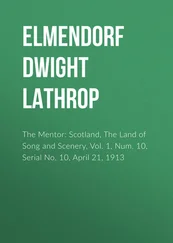It was this he now began to expatiate on to his pupils, who were partly sitting at, partly slumped over their desks. He asked them to flip their pages to Act III, where Dr Relling enters the stage for the first time, to read what he says there, and then move ahead to the end of Act IV (he assumed that the pupils were familiar with the whole play, although they had only reached the middle of Act IV in their examination of it, for their first assignment had been to read the play in its entirety, which he presumed they had done, regardless of what the pupils themselves, individually or as a whole, had accomplished in that respect, thinking, with the hint of an inward smile flickering through his rather — after yesterday’s meditative little drinking bout — shivery body, that there was no reason why he should act as a policeman in class), the very place where Dr Relling, among other things, utters his subsequently immortalised statement about the life-lie, and he said: There you can see, Dr Relling is just chattering, all the time, except for one place, and that is where we are right now. Now we’ve got him, you see, he is in the drama for the first and last time. The pupils did as they were told, leafed back, leafed forward, leafed back to where they were, namely, where they had Dr Relling in the drama for the first and last time. Did they yawn? No, they did not yawn; why should they yawn, this was not something that called for a demonstration so violent as to necessitate a yawn, this was a perfectly ordinary Norwegian class for a group of seniors one Monday morning at Fagerborg Secondary School. There they sat, listening to the teacher’s interpretation of a play that was a prescribed text for their final examination in Norwegian, The Wild Duck , named after a wild duck that lived in an attic, a dark attic as it happened, some looking at the page, some at him, some out of the window. The minutes were slowly ticking away. The teacher continued to talk about the made-up character Dr Relling, who seems to have spoken an immortal line in a play by Ibsen. Here he is, he said, frozen firmly to his own bitter fate. Bitter for him, on the verge of the ridiculous for the rest of us, not least if we were to have him presented to us by way of Dr Relling’s own sarcasms.
But, he added, and now he pointed his finger straight at the class, which startled a few of them, because they did not like to be pointed at in that way, what would have happened if this scene had not been included? Nothing. The play would have been exactly the same, apart from the fact that Dr Relling would not have had his quivering moment. Because it is completely superfluous. It does not affect the development of the plot in the least, nor does it change, as we have seen, Dr Relling, the minor figure. He is exactly the same character, with exactly the same function, both before and after his quivering moment. And when we know that this play is written by the masterful Henrik Ibsen, who carefully lays out his characters and scenes and leaves nothing to chance, we have to ask: Why does Ibsen include this superfluous scene, where Dr Relling, a minor character, speaks a line ‘with a slight tremor in his voice’ and is suddenly pulled into the play as someone with a destiny? There has to be a reason, and since the scene is superfluous, well, in reality, wasted, there can be no other reason than that Ibsen wants to show this made-up minor character of his, Dr Relling, a handsome gesture. But then the question arises: Why …? In that moment, however, the bell rang and the pupils instantly straightened up, closed their school editions of The Wild Duck , got up and walked quietly and confidently out of the classroom, past the teacher, whom they did not take notice of for a moment, not a single one of them, and who was now sitting on his chair, all by himself, annoyed at having been interrupted in the middle of a question.
Ten years ago, he thought, as he too got up, they would at least have let him get to the end of his sentence. But now, as soon as the school bell rang, they closed their books and left the classroom, confidently and blamelessly, because it was beyond doubt that the ringing of the bell signalled the end of the period. The decision was made by the bell, such were the rules whereby the instruction was organised, and one had to follow the rules, they would have said, calmly and convincingly, if he had said it was he who decided when the period was over. They would have looked at him and asked, Why, then, do we have a bell that rings when, after all, it is you and not the bell that decides? he thought they would have said. Then it would have been useless for him to mention that the bell was simply a means of reminding a teacher that it was time to stop, in case he became so fervently elated by his teaching that he forgot both time and place. He went towards the staff room. He was a bit irritated. Not least because he had looked forward to the break even more than they, and he certainly needed it more, tired as he was, both beforehand and after talking for three quarters of an hour almost without a stop. He needed a glass of water and he needed a headache pill. And as he stood there in front of the drinking fountain and poured cold water into a glass, sneaked out a pill and swallowed it, he thought that, by Jove, just the way I feel right now, Dr Relling must have felt throughout the play, with a pressure on his forehead, all shivery, slightly weary of body and soul, yes, it was precisely in this condition he found himself as he went about uttering his semi-elegant (yes, he had to admit that was the way he viewed them) lines, of which at least one had been made immortal, and he had to smile to himself. He sat down in his usual place at the large table in the staff room and talked a little with his colleagues about the football results over the weekend etc. Since the teachers were originally from widely different parts of Norway, every team in our two upper divisions was represented by at least one fervent fan, and those who had won over the weekend never failed to make everyone aware of it. He himself was in Division III, at the top of the division, to be sure, with an annual hope of moving up to Division II, but when they asked him questions it was still mostly out of politeness and sympathy, which he could not find any fault with. (His female colleagues did not take part in these discussions, though they sat at the same table, beside the men, but they were knitting, as he used to tell his wife with a sly little laugh.)
Then back to the classroom. But why should Ibsen offer this gesture to his mouthpiece? he asked, even before the last pupils had come in, found their seats and closed the door. That I cannot understand, it seems so unnecessary, even self-contradictory, well, almost like poor dramatic thinking, and therefore we have to call into question whether Dr Relling is Ibsen’s mouthpiece at all in this play. One reason for Dr Relling to serve as Ibsen’s mouthpiece must, after all, be to prevent Gregers Werle from getting off too easily. But does Gregers Werle get off so easily? It is he, we know, who asks Hedvig to sacrifice herself, shoot and kill the wild duck, and who thus triggers the tragedy. He triggers the tragedy, and is at the same time preoccupied with the idea that Hjalmar Ekdal grows in moral stature as a result. Grows owing to the tragedy that he, Gregers Werle, is responsible for having triggered. Is that not sufficient? One would certainly think so. No, Dr Relling is needed for Gregers Werle to get his comeuppance. But what, then, is Dr Relling’s function in the play, as a minor figure to whom Ibsen even offers the unnecessary gesture that turns him, in a quivering moment, into a frozen destiny, supposed to be? Well, if one reads the play with one’s eyes open, without thinking of anything but just this, and then asks the question, When is Dr Relling necessary? the answer is obvious. Dr Relling is necessary in one place, and that is near the end of the last act. He asked the pupils to leaf forward, and they did, some quickly, others slowly, all sitting in that same dim light which is characteristic of classrooms in a Norwegian school. He also leafed forward and read the scene, in which a shot is heard from inside the attic. A little later it becomes clear that Hedvig has fired the pistol and that the shot has hit herself. What has happened? Has she, at Gregers Werle’s request, gone there to shoot the winged wild duck, fumbled around with the pistol and shot herself? A terrible accident, but profound tragedy? No, this is no accidental shot, the twelve-year-old child has aimed the pistol at herself and pulled the trigger. To show this, to elevate the play from a banal accident to a shocking tragedy, that is, Ibsen needs a character with the authority to confirm that this is the case. In other words, Ibsen needs a physician. Dr Relling, he exclaimed, pounding the table in a flurry of elation. The pupils gave a start, some looking at him in puzzlement, a couple even knitting their brows, as he thought he noticed. Ibsen needs Dr Relling as a natural authority, a witness to the truth, so that he can write this: ‘Dr Relling (goes over to Gregers and says): No-one shall ever fool me into thinking that this was an accident. Gregers (who has stood horror-stricken, twitching convulsively): Nobody can know for certain how this terrible thing happened. Relling: The wadding has burned her bodice. She must have pressed the pistol straight at her breast and fired. Gregers: Hedvig has not died in vain. Didn’t you see how grief released the greatness in him?’
Читать дальше










